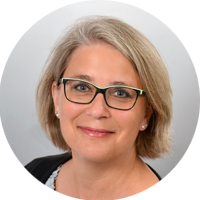Oman's "Arab Spring" - Reform instead of Revolution
The Arab protest movement also reached Oman in 2011. Today, the country is better off than before the riots. Instead of a revolution, with a reform package, Sultan Qaboos took the wind out of the sails of protest.
In November 2010, the Sultanate of Oman celebrated its 40th anniversary. Already in 1991 Sultan Qaboos had launched the "Majlis Al-Shura", the Consultative Council, as an advisory body. Every Omani can run for office here, all Omanis (men and women) are called upon to vote - but the participation is not universal. For large parts of the population, it was unusual to take responsibility for their own lives: Sultan Qaboos had always looked after their welfare. But many Omanis seemingly began to think hard on this National Day for the first time, what would happen to them without their benevolent monarch, who was also celebrating his seventieth birthday. They hoped that after the 40th anniversary of the celebration, Sultan Qaboos would issue reform policies, a hope that did not materialize because of the accumulated power of the "old boys' network."
The simultaneous events of the "Arab Spring" in Tunisia and Egypt and the resulting changes encouraged the younger generation of Oman to publicly protest for the first time. The demonstrators were also supported by the Mufti of Oman, who endorsed the protests of the youth. According to the Ibadhi faith -- the branch of Islam prevalent in Oman -- the population may rebel against unjust conditions in the country. The protest of the Omani youth was directed primarily against corruption and aimed at job creation, as well as co-determination of issues and policies affecting the future of Oman. However, the unrestricted rule of Sultan Qaboos was put in question by the youth.
As tragic as it is, that on February 27, 2011, a demonstrator was killed, his death was also instructive for the prevention of further violence in the following months, in which strikes and demonstrations became the image of the country and almost became a popular sport. But his death shook up the whole populaton. While in Tunisia and Egypt, Facebook and Twitter were the interfaces to co-ordinate the riots, the Omanis sent text messages from cell phone to cell phone, admonishing each other to be careful, that there should be no more violence. Already on March 2, thousands of Omanis demonstrated to protest against the actions of the violent demonstrators in Suhar and express their confidence in the policies of Sultan Qaboos.
In the months that followed, the monarch flooded his people with decrees and decisions designed to meet the demands of the people, and some which went even further. He dismissed twelve ministers and largely replaced them with young, popularly elected members of the Majlis Al-Shura; the corrupt Ministry of the Economy was given six weeks to dissolve itself; the Minister of the Royal Office, who was despised by the people, and the chief security chief, were also fired within a few days. The offices of the police and the public prosecutors were separated; the latter now act in complete independence.
Radio and television were culled from the Ministry of Information. The rights and duties of the Majlis Ash-Shura were greatly expanded. In contrast to the past, they were given the right to legislate and control the ministers' budgets and command them to appear for questioning.The second chamber of the government, the State Council (Majlis Al-Dawla) was filled with the academic elite of society.The task of the council is to participate in the planning of future projects and social development. Both chambers have been tasked with reforming the constitution, which aims to anchor the recent political changes. Qaboos has created 50,000 jobs, raised minimum income for Omanis, introduced universal unemployment benefits and registered all unemployed in the country.
An indication of the growing political consciousness is also the increased participation in the elections to the "Majlis Al-Shura." In December 2011 the number of voters rose by 30 percent to more than half a million. The ministries and state authorities are now also working hard to ensure continuous dialogue with the citizens. In the Omani public forums ombudsmen have been appointed who answer directly to the population. The most amazing thing is that the questions posed are actually answered, promptly in a few hours - a bureaucratic sensation.
Are you interested in a trip to Oman?
► Explore Oman with ARABIA FELIX
Your contacts for travels at Arabia Felix:
Maria Popp, Karin Nowack und Georg Popp
✆ Tel.: +49 (0)89 / 30 77 92 00
✉ info@oman.de



